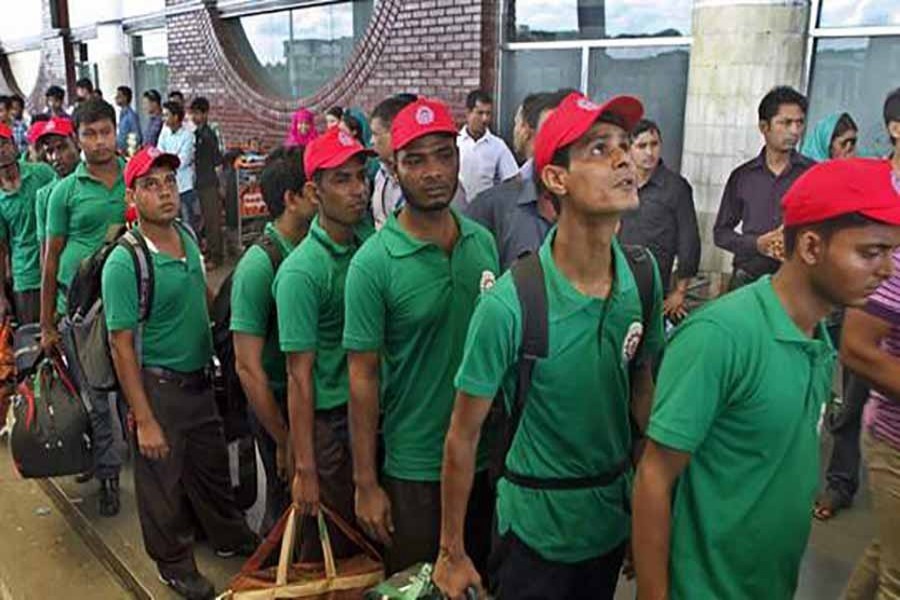
Published :
Updated :

With workers' migration hitting quite a few snags, the latest to take the migration process by storm is the reported suspension of manpower recruitment from Bangladesh by Malaysia. Although the decision of the Malaysian government is yet to be formally acknowledged by the Bangladesh authorities, it has been learnt that the move by Malaysia came as a consequence of large-scale irregularities bordering on what is being dubbed human trafficking. Reports of organised trafficking syndicate, allegedly run by a Bangladeshi businessman in connivance with Malaysian authorities, have unearthed serious malpractices. Understandably, this has prompted Malaysia's decision to halt further recruitment until a thorough investigation is concluded to deal with the matter.
Manpower recruitment for Malaysia has been fraught with many evils ever since it assumed a sizeable proportion more than a decade back. The government, aware that things were going out of control, had time and again intervened to discipline the private recruiters. In an attempt to curb pervasive malpractices, there were moves on the part the government to handle manpower export to Malaysia all by itself, as a temporary measure. Despite strong and at times irrational opposition from the private manpower recruiters' organisations, the Bangladesh Association of International Recruiting Agencies (BAIRA), the government looked determined to strike a sense of orderliness in the recruitment process as well as in the job contract of workers seeking employment in Malaysia. Unlike many other resounding government moves, this initiative to send workers under government-to-government (G-to-G) arrangement made quite a positive impact. The government made it clear that it wanted to set an example of hassle-free movement of workers at the minimum possible expatriation cost and an overseeing mechanism would be in place to take care of the contractual aspects of the workers' employment, their salary package, healthcare, insurance and so on.
Apparently, things looked fine; but when it came to business, it appeared that the G-to-G mechanism was not at all doing well -- stuck by time-consuming bureaucracy for the most part. It was a dismal failure for both the governments to put in place some orderliness and streamline the recruitment process. Eventually, it was the private recruiters who emerged on the scene, as though to salvage the G-to-G mechanism in the name and style of 'G-to-G plus' system. No doubt, the latest mechanism provided ample freedom for the private recruitment agencies to make their presence felt more conspicuously than ever before. As things stand now, it is the fallout of the regained freedom that may have caused the perilous situation in which workers' migration to Malaysia finds now.
What the Malaysian authorities have done in response to alleged malpractices is, no doubt, a well-directed move, as digging into the matter would reveal the evils and also bring the culprits to book. As for the Bangladesh authorities, it is now high time to simultaneously go for action. The perils of job-seekers abroad, mostly ordinary poor people, is a tale of utter distress, deprivation and deceit. Can't the authorities prevail on the masterminds in the interest of workers?


 For all latest news, follow The Financial Express Google News channel.
For all latest news, follow The Financial Express Google News channel.